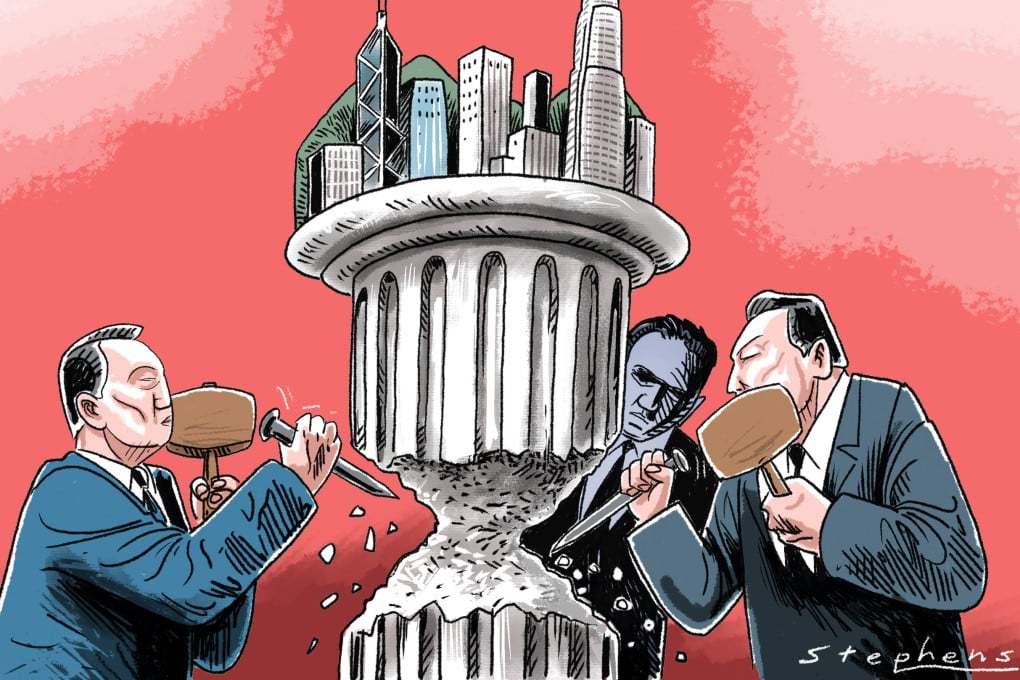Advertisement
Opinion | It’s not Beijing that’s turning Hong Kong into just another Chinese city
- Over the past two years, there have been more signs that Hong Kong’s political elite are driving an increasing mainlandisation, chipping away at the city’s distinctive status and advantages
Reading Time:4 minutes
Why you can trust SCMP
99+

Has Hong Kong become just another Chinese city or will it very soon, having lost its “unique advantages”? The signs hardly augur well.
Late last year, a married couple – eminent thought leaders in Hong Kong – embarked on a month-long trip to Canada and the United States, where they visited relatives and friends with extensive knowledge of this part of the world or who have lived in Hong Kong or on the mainland. The universal reaction was that Hong Kong has become just another Chinese city, or will be very soon.
“The rhetoric hastens the demise of our high degree of autonomy in real and perceptual terms,” one of the pair told me recently. What they experienced was not unique. Overseas perceptions of Hong Kong’s future are very pessimistic.
Perhaps more ominously, more mainlanders believe Hong Kong is fading fast, with a recent acid comment gaining traction on social media, calling Central’s Exchange Square, which houses the stock bourse, a relic of history.
The response from Hong Kong officials has been weak, blaming outsiders for spreading misconceptions while doing a poor job of explaining how different Hong Kong is under “one country, two systems”.
Beijing’s forceful imposition of a national security law in June 2020 hardened the perception that it had intended to make Hong Kong just another Chinese city all along.
Advertisement
